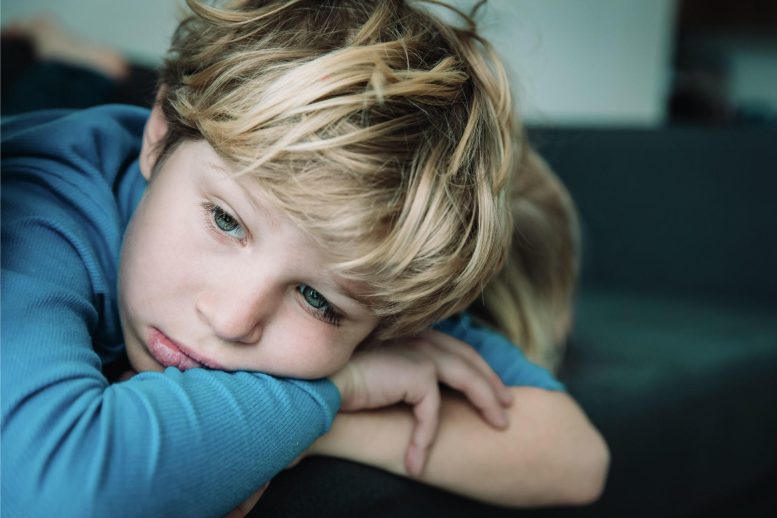
According to the research, corporal punishment during adolescence is associated with an increase in neural sensitivity to making errors and a decrease in neural sensitivity to receiving rewards.
It is generally advised not to spank children due to the negative consequences that have been linked to corporal punishment in decades of research. These consequences include a decline in adolescent health and negative impacts on behavior, such as an increased risk for anxiety and depression. A recent study has examined how corporal punishment may affect neural systems and lead to these adverse effects.
Corporal punishment involves intentionally causing physical pain for the purposes of punishment, correction, discipline, instruction, or any other reason. This type of violence, particularly when inflicted by a parent, can elicit a complex emotional response. Researchers at Florida State University, led by Kreshnik Burani and Greg Hajcak, sought to understand the neural processes underlying this emotional experience and its resulting consequences.
The study was published in the journal Biological Psychiatry: Cognitive Neuroscience and Neuroimaging.
The researchers conducted a longitudinal study on 149 boys and girls ages 11 to 14 from the Tallahassee, FL, area. Participants performed a video game-like task and a monetary guessing game while undergoing continuously recorded electroencephalography, or EEG – a noninvasive technique to measure brain-wave activity from the scalp. From the EEG data, the researchers determined two scores for each participant – one reflecting their neural response to error and the other reflecting their neural response to reward.
Two years later, participants and their parents completed a series of questionnaires to screen for anxiety and depression and to assess parenting style. As expected, kids who had experienced corporal punishment were more likely to develop anxiety and depression.
“Our paper first replicates the well-known negative effect that corporal punishment has on a child’s wellbeing: we found that corporal punishment is associated with increased anxiety and depressive symptoms in adolescence. However, our study goes further to demonstrate that corporal punishment might impact brain activity and neurodevelopment,” said Burani.
That was reflected by larger neural response to error and a blunted response to reward in the adolescents who received physical punishments.
“Specifically,” Burani added, “our paper links corporal punishment to increased neural sensitivity to making errors and decreased neural sensitivity to receiving rewards in adolescence. In previous and ongoing work with Dr. Hajcak, we see that increased neural response to errors is associated with anxiety and risk for anxiety, whereas decreased neural response to rewards is related to depression and risk for depression. Corporal punishment, therefore, might alter specific neurodevelopmental pathways that increase the risk for anxiety and depression by making children hypersensitive to their own mistakes and less reactive to rewards and other positive events in their environment.”
Cameron Carter, MD, Editor of Biological Psychiatry: Cognitive Neuroscience and Neuroimaging, said of the findings, “Using EEG, this study provides new insights into the mechanisms that may underlie the adverse effects of corporal punishment on mental health in children as well as the neural systems that may be affected.”
The work provides new clues as to the neural underpinnings of depression and anxiety and could help guide interventions for at-risk youth.
Reference: “Corporal Punishment Is Uniquely Associated With a Greater Neural Response to Errors and Blunted Neural Response to Rewards in Adolescence” by Kreshnik Burani, C. J. Brush, Chandler Spahr, George M. Slavich, Alexandria Meyer and Greg Hajcak, 21 September 2022, Biological Psychiatry: Cognitive Neuroscience and Neuroimaging.
DOI: 10.1016/j.bpsc.2022.09.004

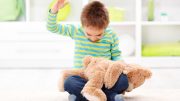
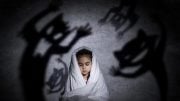



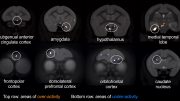
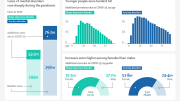
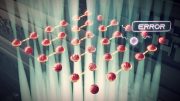
Considering how mentaly unhealthy western capitalistic individualistic competitiv unfair systems are, its no surprise diferent psychological and sociological scientific research yields results that interconnect and help explain why we see rise in depressions, anxiety, personality disorders, violence, abuse and sexual abuse, as well as school shootings and criminality related to violence and drugs use. Sadly, all these related scientific fields, are not used to influence changes in society to further a better civilisation and healthy economic and political developments, as has been seen with the Climate Sciences. I wish, the diferent fields of Psychology , sociology and related, would take up the political influncing activities needed to help create healthy happy secure individuals that make up loving humane cooperativistic nurturing better coping more reciliant nations, societies and global entities. All of you make wondrrful much needed and extremely important contributions of orselves better understandg us, humanity !
This is the biggest BS I’ve read. I teach in public schools, and the lack of parenting causes most problems. I guess if a child falls of his bike and skins his knee this develops anxiety and depression.. seriously
I agree. Total BS. Poor parenting skills lead to kids poor behavior. I spent 35+ plus years in public education and we used the paddle when needed. Many of those same kids still stay in contact. Can’t see any I’ll effects whatsoever. In fact there are some districts that finally wised up and are bringing corporal punishment back.
I Believe for some children the neural linkage has not matured enough to control behavior . I was brought up by parents who used corporal punishment but added in interaction later about why punishment was given which helped cement in the brain a new connection. However if punishment is not given out with discipline , and with frustration and anger then it becomes a trauma . In that case depression and anxiety becomes a negative learned event. Each Child has different personalities and needed to be treated on an individual case .